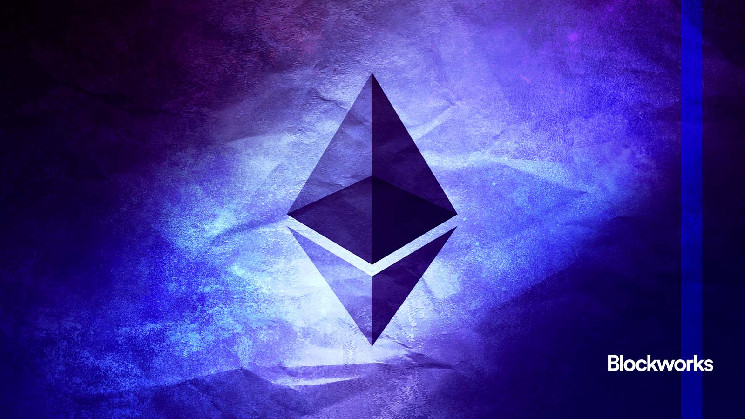In a newly launched report, the Proof of Stake Alliance (POSA) and co-authors Khushi Wadhwa, Nikhil Raghuveera and Jane Khodarkovsky urge the Ethereum group to evaluate the authorized and coverage ramifications of unconditional inclusion lists, a mechanism proposed to make sure censorship resistance on Ethereum.
The paper requires a nuanced dialogue on whether or not such lists genuinely protect Ethereum’s rules of credible neutrality and censorship resistance.
Ethereum inclusion lists, in essence, be sure that particular transactions are included in blocks, stopping validators from excluding them based mostly on their content material or origin. The thought is that by mandating inclusion, Ethereum can higher assure its rules of censorship resistance and credible neutrality, that are foundational to a decentralized blockchain.
Learn extra: Ethereum is wanting extra just like the “Microsoft of blockchains” every single day
Nonetheless, inclusion lists elevate considerations round regulatory compliance and potential authorized liabilities.
“The censorship resistant goals is likely to be undermined by the coverage and authorized implications of [inclusion lists],” Raghuveera, CEO at Predicate, instructed Blockworks.
As they push Ethereum towards extra formalized transaction processing, inclusion lists may expose validators, builders and different community actors to stricter regulatory scrutiny. The talk now facilities on balancing this technical resolution with Ethereum’s ethos and sensible implications for community individuals, notably these in regulated markets.
The report, which was additionally reviewed by the Ethereum Basis, goes past purely technical discussions on inclusion lists to scrutinize potential regulatory outcomes.
As Wadhwa, head of product analysis at Predicate, emphasised, “The paper in the end emphasizes the important have to outline credible neutrality with a view to assess all proposed modifications to Ethereum.” Defining this neutrality, she added, is important for sustaining Ethereum’s stability and participant protections.
The idea of “credible neutrality” in Ethereum largely derives from Vitalik Buterin, who has been its most vocal proponent. It’s additionally been expanded upon by different key figures within the Ethereum group, corresponding to Justin Drake. Vitalik initially launched credible neutrality as a guideline for Ethereum to keep up equity and impartiality. In a decentralized atmosphere, bias or desire for any participant or transaction may undermine belief. Underneath this imaginative and prescient, credible neutrality is important to constructing an open and decentralized community the place all individuals have equal entry and alternatives, free from censorship or favoritism.
A key consideration raised is the inherent rigidity between Ethereum’s censorship resistance targets and the regulatory landscapes many individuals navigate. That rigidity is on the coronary heart of the report, in accordance with POSA govt director Alison Mangiero.
“The Ethereum group has definitely been having a lot of debates about inclusion lists, however not alongside these dimensions, after which in crypto authorized and coverage world — which is the place I hang around — individuals haven’t talked about this in any respect,” Mangiero instructed Blockworks.
This creates an crucial for the community’s builders and policymakers alike to contemplate how inclusion lists may affect regulated entities, probably pushing some individuals out of sure markets or introducing legal responsibility dangers.
Learn extra: Ethereum desires to scale to 100K TPS
The report attracts an analogy between Ethereum and TCP/IP as “a protocol that continues to be basically impartial as to the information it transmits.”
“Regulators may acknowledge that focusing on the Ethereum base layer or infrastructure suppliers is ineffective, as these entities are merely facilitating the impartial transmission of knowledge — just like the position of TCP/IP on the web,” the report states.
This might bolster the argument that inclusion lists might assist Ethereum’s base layer stay unregulated, focusing regulatory consideration on purposes as an alternative.
“Policymakers and regulators might shift focus to the appliance layer, which is likely to be seen as a extra applicable place for regulation,” noting that decentralized apps “typically have centralized factors of management, administration, or participation, which may make them extra inclined to regulatory oversight.”
This method mirrors conventional regulation in expertise and affords Ethereum a pathway to stay credibly impartial.
Alternatively, there are dangers that regulators don’t see inclusion lists on this mild. “Inclusion lists contain proposers making deliberate decisions about which transactions to incorporate in a block — one thing that’s inherently opinionated,” the authors be aware.
Learn extra: Constructing credible neutrality within the MEV battleground
Which means the chips fall might depend upon how a possible Harris or Trump administration views Ethereum. Underneath the established order, “inclusion lists might deliver extra scrutiny,” they argue.
If community individuals, notably block builders, are compelled out of the US or different apparently hostile jurisdictions, that might lower Ethereum’s geographic range and type one other menace to censorship resistance.
Additional analysis ought to give attention to discovering a structured method to Ethereum’s credible neutrality rules with an eye fixed in the direction of minimizing authorized challenges, the report states. Researchers can design options that inherently implement neutrality, making certain that Ethereum treats all transactions equally and maintains a decentralized, unbiased protocol.
Lastly, the report advocates for energetic engagement with policymakers to make clear the distinctions between blockchain infrastructure and particular purposes. By educating stakeholders on blockchains’ advantages and fostering collaborative frameworks, Ethereum can help innovation whereas addressing regulatory considerations.


